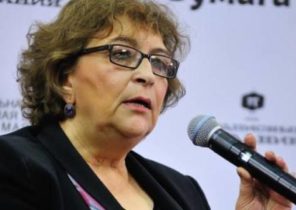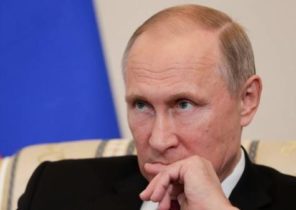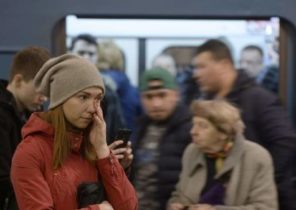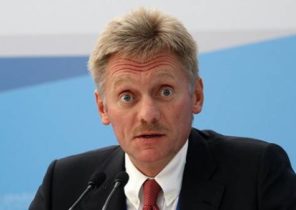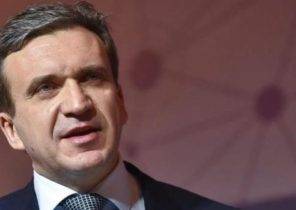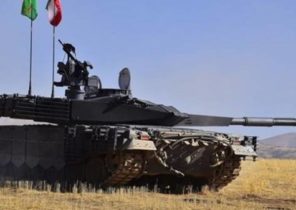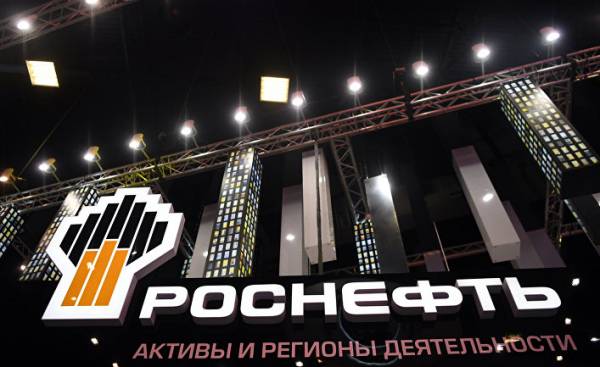
May and beginning of June 2017 was marked by the active promotion of Kurdish diplomacy, with meetings between the leadership of Iraqi Kurdistan and officials from the regional and international level, during which discussed the most important problems of Iraq in the first place the conduct of the referendum and the future relations with Baghdad. Diplomatic campaign began may 14, when a senior delegation headed by adviser of the security Council of Kurdistan Masrour Barzani visited Washington and held talks with Brett Makharam (Brett H. McGurk), special envoy of the President of the United States to combat “Islamic state” (banned in Russia — approx. ed.) and Jared Kushner, a senior adviser to Donald trump. The meeting was attended by the national security Advisor to Herbert McMaster and a number of other officials.
During the talks, they discussed bilateral relations between Erbil and Washington, the latest developments on the fronts of the fight against terrorism and the future of the region after the defeat of ISIS. The American side confirmed its readiness to assist the Kurdistan region support to counter the terrorist threat and security in the region.
At the same time considerable attention during the talks was paid to the issue of a referendum on self-determination for Kurdistan. On 18 may, the head of Iraqi Kurdistan Massoud Barzani arrived in Amman to participate in the international economic forum (Dead sea), which gathered politicians and economists the world level. On the sidelines of the conference, the Kurdish leader has held a number of meetings with heads of foreign States and other officials, including Jordan’s king Abdullah II and Iraqi President Fuad Massoum and the Minister of foreign Affairs of Norway Berg Brand. The negotiations touched upon issues of strengthening bilateral relations and future of Iraq after the military defeat of ISIS and the Syrian crisis and the problem of Iraqi refugees, whose numbers in the countries of the region has reached 2 million. Along with this, Barzani had a meeting with the Minister of foreign Affairs of the Netherlands Bert Kenderson, who welcomed the strengthening of ties between his country and Kurdistan, noting that the Netherlands should continue to develop relations with the region, particularly in the areas of energy, agriculture and water management.
In turn, Massoud Barzani said that this year in Kurdistan will hold a referendum on the question of the conservation area in Iraq. The sides discussed the political situation in the region, the refugee crisis and confrontation “Islamic state”.
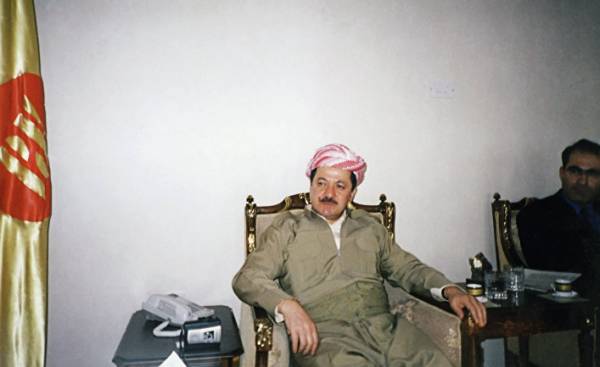 © RIA Novosti RIA Novosti | go to fotomancer Kurdish autonomy in Northern Iraq Massoud Barzani. Archive photo
© RIA Novosti RIA Novosti | go to fotomancer Kurdish autonomy in Northern Iraq Massoud Barzani. Archive photo
The head of Iraqi Kurdistan also met with members of Global shapers, which brings together talented young people around the world. The purpose of the meeting was to familiarize with the position of Barzani on the situation in Kurdistan, the referendum and independence. Barzani outlined the history of the Kurds in Iraq on the basis of the partnerships built between Erbil and Baghdad, and also about the misfortunes that befell the Kurdish people through the fault of successive governments of Iraq and pointed out the factors that motivate the people of Kurdistan, to announce the holding of a referendum.
The culmination of Kurdish diplomatic campaign was the visit of a senior delegation of Kurdistan under the leadership of the head of the regional government nechirvan Barzani, to Russia to participate in the international economic forum held in St. Petersburg on 1 June. June 2, nechirvan Barzani met with Russian President Vladimir Putin. At a press conference following the meeting, Barzani said that during the talks discussed bilateral relations between Kurdistan region and Russia, as well as the importance of further strengthening them. On the same day held a meeting with Minister of foreign Affairs of Russia Sergey Lavrov. After the talks, the foreign Minister of the Russian Federation stated that Russia is watching the situation in Kurdistan and sought to strengthen relations with this region. Sergei Lavrov also stressed that the Central government of Iraq is known about the interaction of Russia and the Kurdistan region, and such cooperation does not go beyond the Constitution. During the visit to Russia the leader of the Iraqi Kurds also met with the Minister of energy of the Russian Federation, which emphasized the positive nature of the relationship between Russia and Kurdistan, especially in the field of energy. The Minister noted the efforts of the Russian government to encourage Russian companies to invest in this sphere and expressed readiness to support those enterprises that aim to work in Kurdistan.
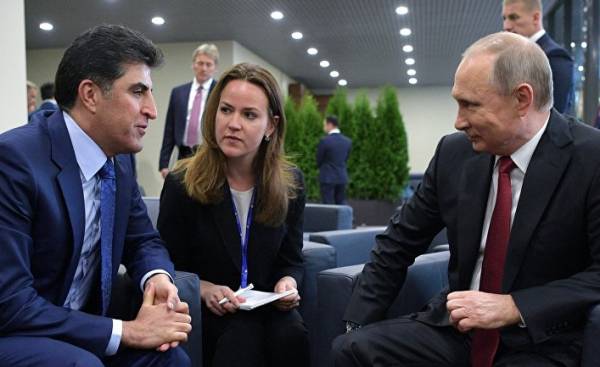 © RIA Novosti, Alexei Druzhinin | go to Photobacterium of the Russian Federation Vladimir Putin and Prime Minister of the Kurdish Autonomous region of Iraq Nechirvan Barzani during a meeting at the St. Petersburg international economic forum 2017
© RIA Novosti, Alexei Druzhinin | go to Photobacterium of the Russian Federation Vladimir Putin and Prime Minister of the Kurdish Autonomous region of Iraq Nechirvan Barzani during a meeting at the St. Petersburg international economic forum 2017
During the meeting with the representatives of “Rosneft” and its head, the sides discussed the investment opportunities in Kurdistan, confirming the need for further negotiations. Following the meeting signed a number of agreements on cooperation in the field of oil, at the signing which was attended by the Prime Minister of Kurdistan nechirvan Barzani and his Deputy Qubad Talabani. In the ensuing press conference it became known that the parties have signed a long term agreement under which Rosneft will invest in Kurdistan and signed an agreement on the development of new projects in the Kurdistan region and strengthen relations between Erbil and Moscow. At the same time the press-Secretary of Rosneft Mikhail Leontyev said that Russian oil company signed a number of agreements on exploration, logistics services, infrastructure development and energy trade. In accordance with the documents entered into in 20 years, the largest Russian oil company will participate in the management and development of a network of pipelines that connects the Kurdistan region and Turkey. In an official statement, Rosneft also said that at the moment the throughput of this pipeline is up to 700 thousand barrels per day. However, it was decided to increase this figure to one million barrels per day at the end of this year. The statement said that Kurdistan is a promising foreign market, in terms of energy because the region has reserves of 45 billion barrels of oil and 5.7 trillion cubic meters of gas.
The agreement is a Supplement to the Memorandum of understanding, which was signed by the parties last February in the conference “international week of oil” in London.
It is also worth mentioning the meeting between Barzani Nechirvan with the General Director of “Gazprom Neft” Alexander Dyukov held in the framework of the economic forum in St. Petersburg. Mr Dyukov said that the company is successfully operating in Kurdistan, and is ready to expand its activities in this region in the future. Willingness to cooperate was expressed by the head of the government of Iraqi Kurdistan.
In addition to holding the above meetings, the members of the regional government of Iraqi Kurdistan has established contacts with official representatives of other countries at the international forum on security issues held in Bratislava on 28 may that gathered dozens of politicians, foreign Ministers, defense Ministers, academics and experts in the field of strategy and security. During the forum, a delegation of Iraqi Kurdistan under the leadership Fallah Mustafa, Minister of external relations in the regional government of Kurdistan, held a series of meetings with Deputy Prime Minister and Minister of foreign Affairs of Slovakia Miroslav Lajcak, Minister of foreign Affairs and trade of Hungary péter Szijjártó, Minister of foreign Affairs of Turkey, mevlüt çavuşoğlu and foreign Minister of Montenegro Sarjana Germanovichi. During these meetings, Falah Mustafa spoke about the developments in Kurdistan in the political, economic, military and humanitarian spheres, as well as explained the position of the authorities of Kurdistan on a number of contemporary issues in the region, in particular, on combating violence and terrorism. Falah Mustafa highly appreciated the role of the armed forces of the Peshmerga in defending Kurdish territories and obstructing the implementation of the plans of IG. In addition, was discussed the question of holding a referendum in Kurdistan.
In Erbil and the meeting between the Minister of external relations of the regional government of Iraqi Kurdistan and the delegation of the Ministry of foreign Affairs of Japan under the leadership of the head of the second Department of the Department of Middle East and North Africa of the foreign Ministry of Japan, Tomofumi Nishinaga and Japan’s Consul in Erbil Crato Kato. Tomofumi Nishinaga, said: “We observe positive dynamics in relations between the parties and on behalf of the Ministry of foreign Affairs of Japan invite the Minister for external relations to visit Tokyo with the aim of further development and strengthening of bilateral interaction.” Nishinaga added that Japan is ready to provide aid to Iraqi Kurdistan through the Japan international cooperation Agency (JICA). He also added that Japan is waiting for the defeat of ISIS and hoped that security and peaceful coexistence will be the basis for the future structure of the region after the victory over the terrorists. In turn, Fallah Mustafa praised the level of relations between Kurdistan and Japan, noting that the opening of the Japanese Consulate in Erbil is an important step towards the development of relations and stressing that Japan takes into account the interests of Kurdistan in providing the Iraqi authorities loans and opportunities for development. The main topics of discussion were the situation in Kurdistan and Iraq, fighting terrorists of the Islamic state, relations between Erbil and Baghdad and the issue of the referendum.
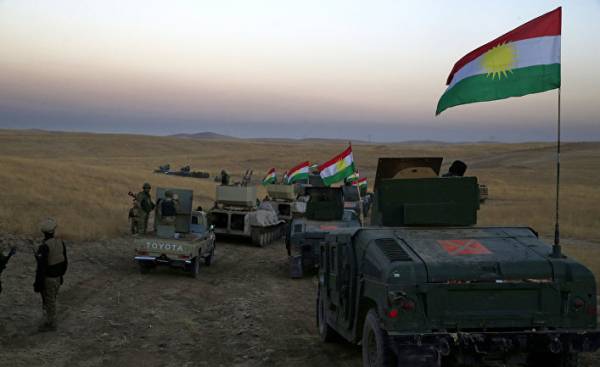 © AP Photo, Bram Apply armored vehicles of the Kurdish Peshmerga, 30 km from Mosul, Iraq. 17 Oct 2016
© AP Photo, Bram Apply armored vehicles of the Kurdish Peshmerga, 30 km from Mosul, Iraq. 17 Oct 2016
All diplomatic efforts of the Iraqi Kurdistan indicate that its regional leadership is willing to discuss the situation in Iraq and the region after the war with ISIS and the issue of a referendum on self-determination with all parties involved in the decision-making on global issues. The decisive factor in all these issues are considered as relations between Baghdad and Erbil, but also regional and international factors also have a significant impact on the situation. For this reason, the Kurdistan regional government is taking the most active diplomatic efforts in all directions.
The result of a series of the negotiations was the announcement of the US continued its military support to the region in the fight against terrorism. However, the American side has never clarified its position on the question of holding a referendum, but rejected the idea. This suggests that Washington does not want to provoke a negative reaction of the Baghdad statement of support of the referendum. At the same time takes into consideration the delicacy of the situation in the region at this stage and efforts to develop a new road map for Syria and Iraq, where the United States would play a key role and their impact on the situation in the region after the military defeat of ISIS. America is waiting for developments, taking into account their interests.
As for Russia, which is a permanent member of the UN Security Council and a country that has a strong influence on the balance of power in the Middle East, its position clear during his meetings with a delegation from the Kurdish regional government headed by Barzani Nechirvan at the international economic forum in St. Petersburg. Russia is closely following the developments in the middle East, and has a clear view of the impending referendum. The Russian side at the highest level received the Kurdish delegation, meeting with Russian President Vladimir Putin, foreign Minister Sergei Lavrov and other politicians and heads of the largest Russian oil companies. During these meetings with representatives of the region signed a number of agreements in the oil sector. This fact demonstrates that Moscow would politically and economically to support Erbil in the future, as now they share long-term economic agreements. In addition, Russia understands that the Kurdish problem affects any measure of settlement in the middle East. Participating in the fight against terrorism, Kurdistan has become a force that has a significant impact on the regional balance of power. At the same time, it poses a threat to the interests of the largest players in the region and creates a safe environment for their implementation.
The authorities of Iraqi Kurdistan remains to establish relations with China — a permanent member of the UN Security Council, to discuss the prospects for the Kurdish project and clarify the position of China on this issue. Britain and France, which are also permanent members of the UN Security Council, did not object to this project, as evidenced by military and economic support to these countries to Kurdistan recently. Other States for which the region has a value, entering into alliances with major powers and follow their policy, on the basis of common interests. It remains only to emphasize that for the successful conduct of the referendum on self-determination in Kurdistan needs to establish a partnership in military and economic spheres with the largest forces shaping the future of the region and form new shapes.


